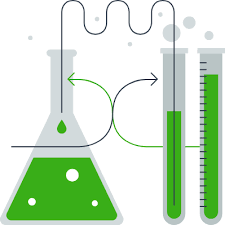Chemical plant environmental compliance is a critical issue in Egypt, as it is essential to ensure that the environmental consulting firms ...
Chemical plant environmental compliance is a critical issue in Egypt, as it is essential to ensure that the environmental consulting firms operations of such facilities do not have a detrimental impact on the surrounding environment. The proper management of chemical plant environmental compliance in Egypt is crucial in order to protect the health and safety of both the local community and the ecosystem. This article aims to explore the efforts and strategies in place to ensure chemical plant environmental compliance in Egypt, and the challenges that may arise in the process.
Ensuring chemical plant environmental compliance in Egypt involves adhering to the country's environmental regulations and standards. This includes obtaining necessary permits, monitoring air and water emissions, managing hazardous waste, and implementing pollution control measures. Companies must also conduct regular environmental assessments and audits to ensure ongoing compliance. Non-compliance can result in fines, shutdowns, and negative impacts on public health and the environment. It is essential for chemical plants to proactively prioritize environmental consulting services environmental compliance to operate sustainably and responsibly in Egypt.
Challenges of Chemical Plant Environmental Compliance in Egypt

Chemical plant environmental compliance in Egypt poses various challenges and requirements for industry operators. The regulatory framework in Egypt sets out specific guidelines and standards that must be adhered to in order to ensure the protection of the environment and surrounding communities. Implementation of best practices, monitoring and reporting requirements, and investment in sustainable technologies are essential for maintaining compliance and minimizing the impact of chemical plant operations on the environment. Ultimately, the future of chemical plant environmental compliance in Egypt will depend on the collective environmental inspection services efforts of industry players, regulators, and the commitment to sustainable development.
One of the challenges of chemical plant environmental compliance in Egypt is the lack of stringent enforcement of environmental regulations. This can lead to a lack of motivation for companies to invest in necessary equipment and processes to minimize their environmental impact. Additionally, limited public awareness and understanding of the potential risks associated with chemical plants can hinder efforts to improve compliance. Furthermore, the political and economic instability in the region can also impact the ability of regulatory agencies to effectively monitor and enforce environmental regulations. Overall, these factors contribute to the difficulty of ensuring full compliance with environmental standards in chemical plants in Egypt.
Regulatory Framework for Chemical Plant Environmental Compliance in Egypt

The regulatory framework for chemical plant environmental compliance in Egypt is primarily governed by the Egyptian Environmental Affairs Agency (EEAA) and the Ministry of Health and Population. The EEAA is responsible for issuing permits, setting emissions standards, and ensuring compliance with national environmental laws. The Ministry of Health and Population also plays a key role in regulating chemical plant operations to protect public health and safety. Egyptian environmental laws and regulations that chemical plants must adhere to include the Egyptian Law on Environmental Protection (Law No. 4 of 1994), which sets forth general environmental protection principles and regulations for industrial activities. Additionally, the EEAA has issued specific regulations governing air and water quality, waste management, and hazardous materials handling that apply to chemical plants. Chemical plants in Egypt are required to obtain permits from the EEAA in order to operate, and must comply with strict emissions and effluent standards. They are also required to conduct regular monitoring and reporting of environmental impacts, and are subject to inspections and enforcement actions by regulatory authorities. Overall, the regulatory framework for chemical plant environmental compliance in Egypt is designed to protect human health and the environment by ensuring that chemical plants operate in a safe and environmentally responsible manner. Compliance with these regulations is essential for chemical plants to operate legally in Egypt and to minimize their environmental footprint.
Implementing Best Practices for Chemical Plant Environmental Compliance in Egypt

Implementing best practices for chemical plant environmental compliance in Egypt involves adhering to local regulations and standards, as well as adopting international best practices for minimizing environmental impact. This includes implementing proper waste management systems, monitoring emissions, and conducting regular environmental audits. Additionally, investing in renewable energy sources and sustainable practices can help reduce the overall environmental footprint of chemical plants in Egypt. Collaboration with local authorities and communities can also facilitate the implementation of best practices and ensure long-term environmental sustainability.
Monitoring and Reporting Requirements for Chemical Plant Environmental Compliance in Egypt
sustainability consulting Egypt

The monitoring and reporting requirements for chemical plant environmental compliance in Egypt are outlined by the Egyptian Environmental Affairs Agency (EEAA) and are in line with national environmental laws and regulations. The requirements include regular monitoring of air emissions, water discharges, and waste management practices to ensure compliance with permissible limits. Chemical plants are required to install and maintain monitoring equipment to continuously measure and record emissions and discharges. This data is then reported to the EEAA on a regular basis, as specified by the regulations. In addition to monitoring, chemical plants are also required to keep records of their environmental performance, including waste generation, treatment, and disposal. The reporting requirements may include submitting periodic reports, such as monthly or quarterly, detailing the monitoring results and any corrective actions taken to address non-compliance issues. The EEAA may also conduct inspections and audits to verify compliance with environmental regulations. Failure to comply with the monitoring and reporting requirements can result in penalties and enforcement actions by the EEAA, including fines, operational restrictions, or even closure of the chemical plant. Therefore, it is essential for chemical plants to carefully adhere to the monitoring and reporting requirements to maintain environmental compliance in Egypt.
Impact of Chemical Plant Environmental Compliance on Surrounding Communities in Egypt
Chemical plants in Egypt have a significant impact on the surrounding communities in terms of environmental compliance. These plants can contribute to air and water pollution, as well as soil contamination, which can have negative effects on the health and well-being of nearby residents. Additionally, the release of hazardous materials from these facilities can pose a serious threat to the local ecosystem and natural resources. The enforcement of strict environmental regulations and the implementation of effective monitoring and control measures are essential to mitigate these potential impacts and protect the surrounding communities. It is crucial for chemical plants to prioritize environmental compliance and sustainable practices to minimize their adverse effects on the environment and public health.
Investing in Sustainable Technologies for Chemical Plant Environmental Compliance in Egypt
Investing in sustainable technologies for chemical plant environmental compliance in Egypt is critical for ensuring the protection of the environment and human health. Egypt has been facing issues related to air and water pollution, soil contamination, and other environmental challenges due to industrial activities, including chemical plants. By investing in sustainable technologies such as renewable energy sources, water recycling systems, and air pollution control equipment, chemical plants can reduce their environmental impact and comply with local and international regulations. This not only helps in minimizing negative environmental effects but also enhances the overall corporate social responsibility of the company. Furthermore, investing in sustainable technologies can also lead to cost savings in the long run, as these technologies often result in reduced energy consumption, lower waste generation, and more efficient production processes. Overall, investing in sustainable technologies for chemical plant environmental compliance in Egypt is a crucial step in promoting sustainable industrial development and ensuring a healthier environment for current and future generations.
The Future of Chemical Plant Environmental Compliance in Egypt
The future of chemical plant environmental compliance in Egypt is a critical issue that is gaining increasing attention. As the country strives to balance economic growth with environmental responsibility, there is a growing focus on ensuring that chemical plants adhere to stringent environmental regulations. This includes measures to limit air and water pollution, mitigate the impact of hazardous waste, and promote sustainable practices. The Egyptian government has been implementing stricter enforcement of environmental laws and regulations, and there is a growing emphasis on promoting eco-friendly technologies and processes within the chemical industry. This indicates a shift towards a more sustainable and environmentally conscious approach to chemical plant operations in Egypt.


